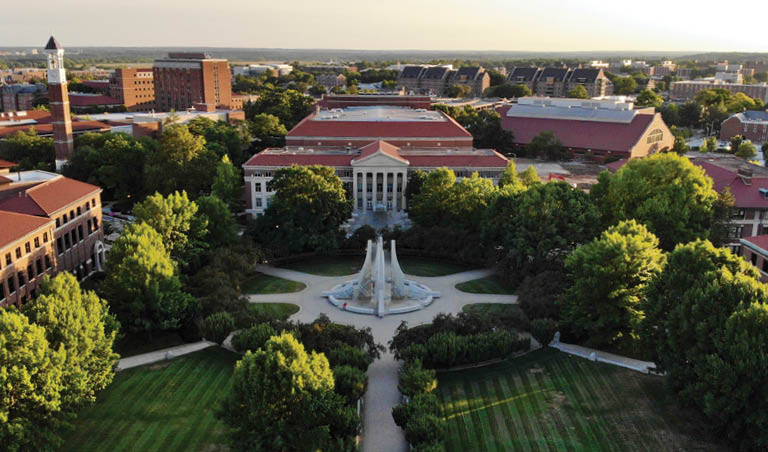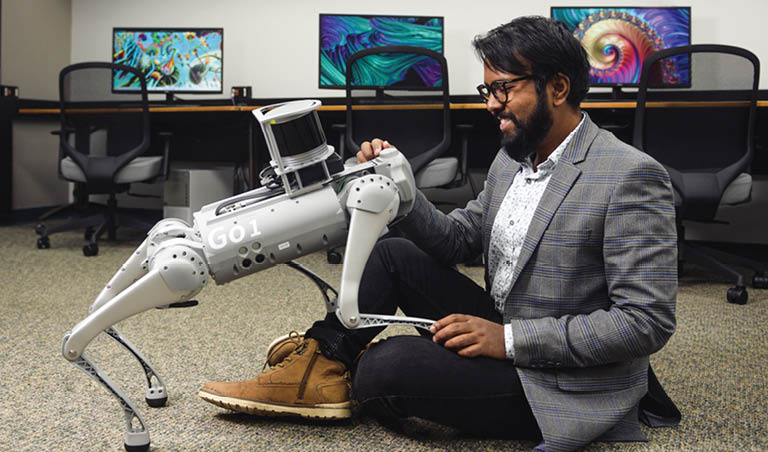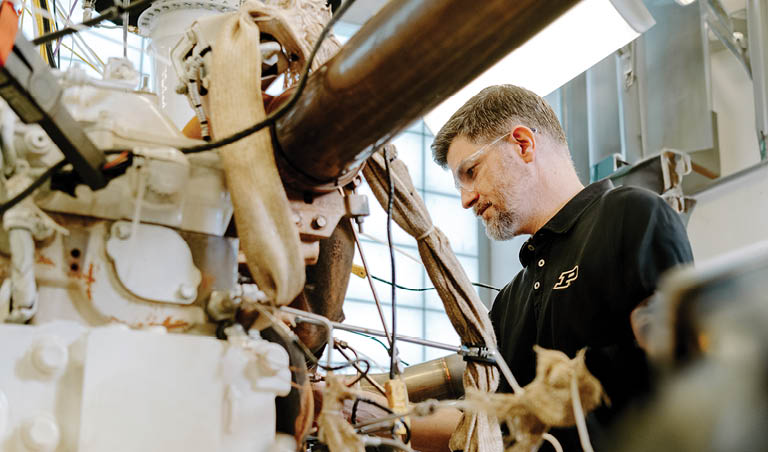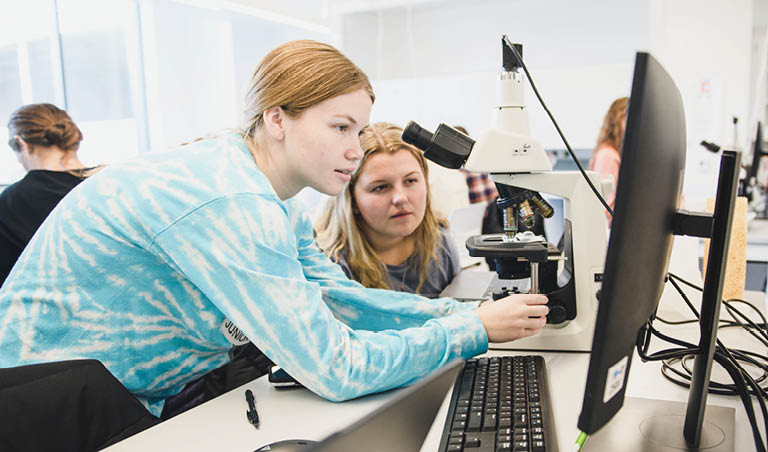Institute for Physical Artificial Intelligence
Purdue University is building a world-leading program in artificial intelligence (AI). Leveraging Purdue’s signature strengths in materials science, engineering, microelectronics, computer science, agriculture and life sciences, the Institute for Physical AI (IPAI) is committed to solving the world’s toughest challenges.

IPAI in the News
With potential to transform all aspects of everyday life, AI is shaping the next pursuit at Purdue University. Through its world-class programs, research and expertise, Purdue is guiding the advancement and future of artificial intelligence.
See IPAI NewsThe Institute of Physical AI will couple scientists from across Purdue who bring interdisciplinary thinking and problem-solving to solve issues at the intersection of AI and a variety of critical functions, such as more efficient pharmaceutical manufacturing, digital forestry and more efficient transportation.
Karen Plaut
Executive Vice President for Research

AI Experts at Purdue
AI is shaping almost every subject, every discipline and every career field as it evolves. Purdue’s often sought-after experts share their insights on topics including self-driving cars and human-AI interaction.
Meet Our Experts
IPAI Centers and Labs
Purdue has existing centers in a wide variety of areas that leverage Purdue’s research strengths to provide a foundation for rapid growth in research excellence in physical AI — including open agricultural data, neuromorphic computing, deepfake detection, edge AI systems, smart transportation data, AI-based manufacturing and more.
View Centers and Labs
Collaboration
Purdue University plays a leading role in the Institute for Agent-based Cyber Threat Intelligence and OperatioN (ACTION), a new National Artificial Intelligence Research Institute.
In this role, Purdue leverages programs and initiatives from CERIAS, the Center for Education and Research in Information Assurance and Security, and provides expertise in key areas such as cyber-physical security; cyber-physical knowledge discovery, integration and reasoning; and human-AI agent collaboration. The $20 million project, led by UC Santa Barbara, is a collaboration among leading computer scientists and engineers from 12 universities across the nation.